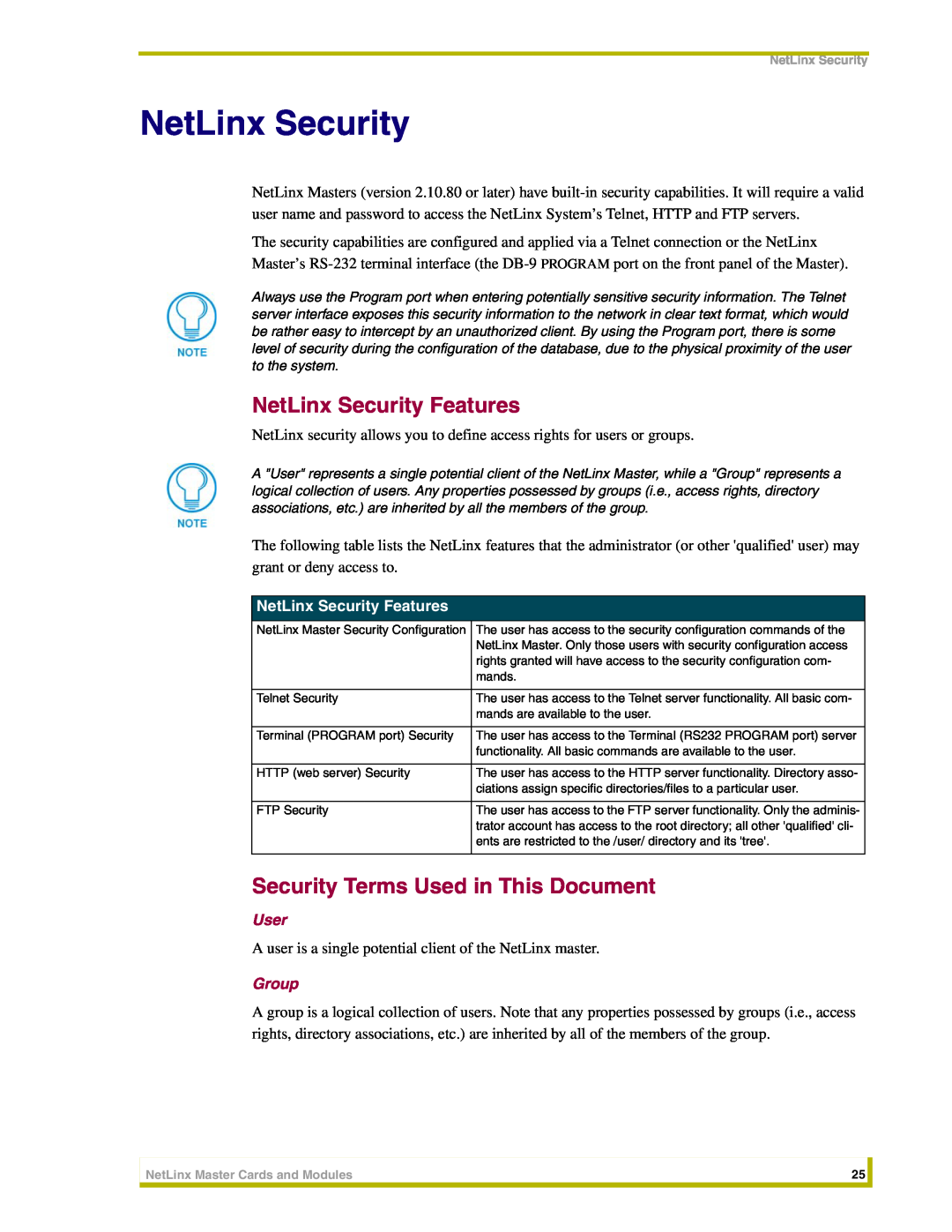
NetLinx Security
NetLinx Security
NetLinx Masters (version 2.10.80 or later) have
The security capabilities are configured and applied via a Telnet connection or the NetLinx Master’s
Always use the Program port when entering potentially sensitive security information. The Telnet server interface exposes this security information to the network in clear text format, which would be rather easy to intercept by an unauthorized client. By using the Program port, there is some level of security during the configuration of the database, due to the physical proximity of the user to the system.
NetLinx Security Features
NetLinx security allows you to define access rights for users or groups.
A "User" represents a single potential client of the NetLinx Master, while a "Group" represents a logical collection of users. Any properties possessed by groups (i.e., access rights, directory associations, etc.) are inherited by all the members of the group.
The following table lists the NetLinx features that the administrator (or other 'qualified' user) may
grant or deny access to.
NetLinx Security Features
NetLinx Master Security Configuration | The user has access to the security configuration commands of the |
| NetLinx Master. Only those users with security configuration access |
| rights granted will have access to the security configuration com- |
| mands. |
|
|
Telnet Security | The user has access to the Telnet server functionality. All basic com- |
| mands are available to the user. |
|
|
Terminal (PROGRAM port) Security | The user has access to the Terminal (RS232 PROGRAM port) server |
| functionality. All basic commands are available to the user. |
|
|
HTTP (web server) Security | The user has access to the HTTP server functionality. Directory asso- |
| ciations assign specific directories/files to a particular user. |
|
|
FTP Security | The user has access to the FTP server functionality. Only the adminis- |
| trator account has access to the root directory; all other 'qualified' cli- |
| ents are restricted to the /user/ directory and its 'tree'. |
|
|
Security Terms Used in This Document
User
A user is a single potential client of the NetLinx master.
Group
A group is a logical collection of users. Note that any properties possessed by groups (i.e., access rights, directory associations, etc.) are inherited by all of the members of the group.
NetLinx Master Cards and Modules | 25 |
|
|
|
|
